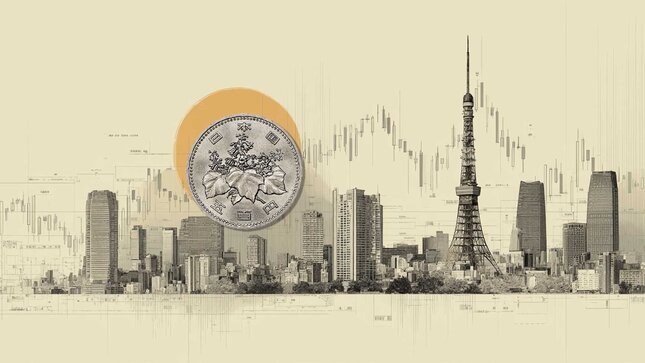“Good luck making investment decisions on gut feel,” writes Barry Ritholtz and I couldn’t agree more. But I also couldn’t agree less. Because I could flip that statement around and say good luck making investments without your gut feel.
We all know that a systematic, well thought approach to the market is far more effective than the seat-of-the-pants-let-me-see-how-this-goes-method that many of us employ. In fact, there is absolutely no dispute that a simple dollar cost averaging long only investment into the S&P index is the only assured way of making money in the market. This strategy beats 90% of all Masters of Universe hedge fund managers including Ray Dalio, Paul Tudor Jones, David Einhorn, Bill Ackman and anyone else you can think of with the exception of Warren Buffett and George Soros.
But knowing something is true and feeling it true are two very different things. And although we like to think of ourselves as thinking organisms that feel, we are actually feeling organisms that think. As a colleague of mine remarked this week in his typical sardonic East European way, “we are just animals with bigger brains.”
So the intellectual truth of an idea is not enough. It must be emotionally true as well if we are to accept it.
I fully comprehend the power of indexing - yet I have avoided it all my life because I had the misfortune of starting my “savings career” at the peak of the dot com boom only to have to cash out the money for my son’s education around 2010 when the S&P basically made two round trips to the same place. The disappointment of seeing my money produce zero return for more than a decade colored my attitude towards indexing for the rest of my life. That was a very dumb decision in retrospect. I would have saved tens of thousands of hours of work achieving the very same results that I did by day trading - but history couldn’t have gone any other way. Although I knew intellectually that indexing worked, I didn’t accept it emotionally and therefore for me it would have never worked no matter how many times I would have tried it. I would have inevitably sold at the bottom and bought at the top and never achieved even remotely close results of the passive index.
Past performance is not indicative of future results. Trading forex carries a high level of risk, and may not be suitable for all investors. The high degree of leverage can work against you as well as for you. Before deciding to trade any such leveraged products, you should carefully consider your investment objectives, level of experience, and risk appetite. The possibility exists that you could sustain a loss of some or all of your initial investment and therefore you should not invest money that you cannot afford to lose. You should be aware of all the risks associated with trading on margin, and seek advice from an independent financial advisor if you have any doubts.
Editors’ Picks

EUR/USD: US Dollar to remain pressured until uncertainty fog dissipates Premium
The EUR/USD pair lost additional ground in the first week of February, settling at around 1.1820. The reversal lost momentum after the pair peaked at 1.2082 in January, its highest since mid-2021.

Gold: Volatility persists in commodity space Premium
After losing more than 8% to end the previous week, Gold (XAU/USD) remained under heavy selling pressure on Monday and dropped toward $4,400. Although XAU/USD staged a decisive rebound afterward, it failed to stabilize above $5,000.

GBP/USD: Pound Sterling tests key support ahead of a big week Premium
The Pound Sterling (GBP) changed course against the US Dollar (USD), with GBP/USD giving up nearly 200 pips in a dramatic correction.

Bitcoin: The worst may be behind us
Bitcoin (BTC) price recovers slightly, trading at $65,000 at the time of writing on Friday, after reaching a low of $60,000 during the early Asian trading session. The Crypto King remained under pressure so far this week, posting three consecutive weeks of losses exceeding 30%.

Three scenarios for Japanese Yen ahead of snap election Premium
The latest polls point to a dominant win for the ruling bloc at the upcoming Japanese snap election. The larger Sanae Takaichi’s mandate, the more investors fear faster implementation of tax cuts and spending plans.
RECOMMENDED LESSONS
Making money in forex is easy if you know how the bankers trade!
I’m often mystified in my educational forex articles why so many traders struggle to make consistent money out of forex trading. The answer has more to do with what they don’t know than what they do know. After working in investment banks for 20 years many of which were as a Chief trader its second knowledge how to extract cash out of the market.
5 Forex News Events You Need To Know
In the fast moving world of currency markets where huge moves can seemingly come from nowhere, it is extremely important for new traders to learn about the various economic indicators and forex news events and releases that shape the markets. Indeed, quickly getting a handle on which data to look out for, what it means, and how to trade it can see new traders quickly become far more profitable and sets up the road to long term success.
Top 10 Chart Patterns Every Trader Should Know
Chart patterns are one of the most effective trading tools for a trader. They are pure price-action, and form on the basis of underlying buying and selling pressure. Chart patterns have a proven track-record, and traders use them to identify continuation or reversal signals, to open positions and identify price targets.
7 Ways to Avoid Forex Scams
The forex industry is recently seeing more and more scams. Here are 7 ways to avoid losing your money in such scams: Forex scams are becoming frequent. Michael Greenberg reports on luxurious expenses, including a submarine bought from the money taken from forex traders. Here’s another report of a forex fraud. So, how can we avoid falling in such forex scams?
What Are the 10 Fatal Mistakes Traders Make
Trading is exciting. Trading is hard. Trading is extremely hard. Some say that it takes more than 10,000 hours to master. Others believe that trading is the way to quick riches. They might be both wrong. What is important to know that no matter how experienced you are, mistakes will be part of the trading process.
The challenge: Timing the market and trader psychology
Successful trading often comes down to timing – entering and exiting trades at the right moments. Yet timing the market is notoriously difficult, largely because human psychology can derail even the best plans. Two powerful emotions in particular – fear and greed – tend to drive trading decisions off course.


